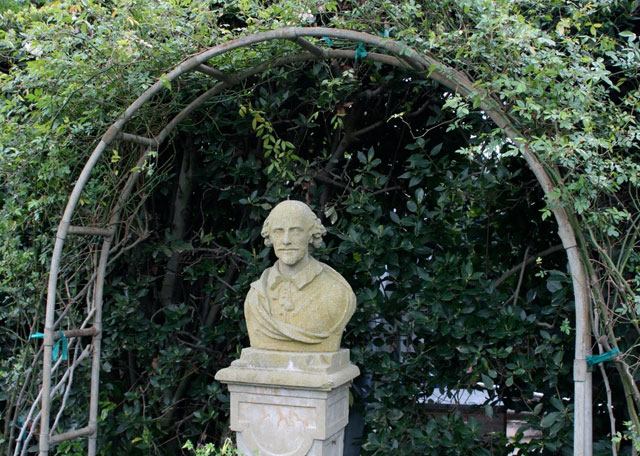Шекспир. Сонет 126. Quietus. Покой
Серп Времени - часы и зеркала,
Ты показал, что в росте увяданья
взросла твоя сладчайшая душа.
Природа, разрушения хозяйка,
тебя вернет во времени назад,
Ты служишь цели, чтоб ее смекалка
Убила Время, опозорив час.
Но бойся ее все же - насладить
она тебя возьмет, но сохранить?
Ты должен ей воздать за аудит,
Ее покой с тобою должен быть.
SONNET 126
O thou, my lovely boy, who in thy power
Dost hold Time's fickle glass, his sickle, hour;
Who hast by waning grown, and therein show'st
Thy lovers withering as thy sweet self grow'st;
If Nature, sovereign mistress over wrack,
As thou goest onwards, still will pluck thee back,
She keeps thee to this purpose, that her skill
May time disgrace and wretched minutes kill.
Yet fear her, O thou minion of her pleasure;
She may detain, but not still keep, her treasure:
Her audit, though delay'd, answer'd must be,
And her quietus is to render thee.
NOTES
CXXVI. This Sonnet may probably have been designed, not merely as an Envoy to the Sonnets next preceding, or to Sonnets c. to cxxv., but as a conclusion to the whole of the first series. The poet's friend is warned that though Nature has hitherto preserved his beauty, and successfully resisted Time and Decay, yet that she has but a limited power, and that she must by-and-by inevitably surrender.
1. My lovely boy. It appears thus implied that Mr. W. H. is still a youth.
2. Time's fickle glass. Time's ever-shifting and changing hour-glass. His sickle hour. His hour which, like a sickle, cuts off all things beautiful. There is, of course, an allusion to the scythe or sickle with which the figure of Time is represented as armed.
3. Who hast by waning grown. Whose change with the advance of time has been a growth in beauty.
4. Thy lovers withering. As men commonly decay with advancing age.
5. Wrack. Decay.
6. Pluck thee back. Pull and keep thee back, so as to be still in youthful beauty.
8. May Time disgrace. His agency being thwarted, and his efforts rendered ineffectual. Wretched minutes kill. The "minutes" are killed or annihilated, as leaving behind them no trace of their existence.
9. Yet fear her. Do not place assured confidence in her, that is, in Nature.
10. Not still keep. Not keep continually.
11. She must render her account at last.
12. Quietus has been taken as a technical legal term, implying an acquittance or discharge of obligation. As this Sonnet has twelve lines only, the printer of the Quarto seems to have thought that two lines were lacking, and accordingly placed at the end marks of parenthesis thus:
( )
( )
Свидетельство о публикации №119071905801
Прозектор Перец Хитрый 2 22.07.2019 12:29 • Заявить о нарушении
А по quietus - загляните в словарь или в гугл или яндекс переводчик. там и примеры из литературы.
и синонимы даны: rest, eternal sleep.
и по контексту - речь идет о смерти.
Елизавета Судьина 23.07.2019 19:02 Заявить о нарушении

